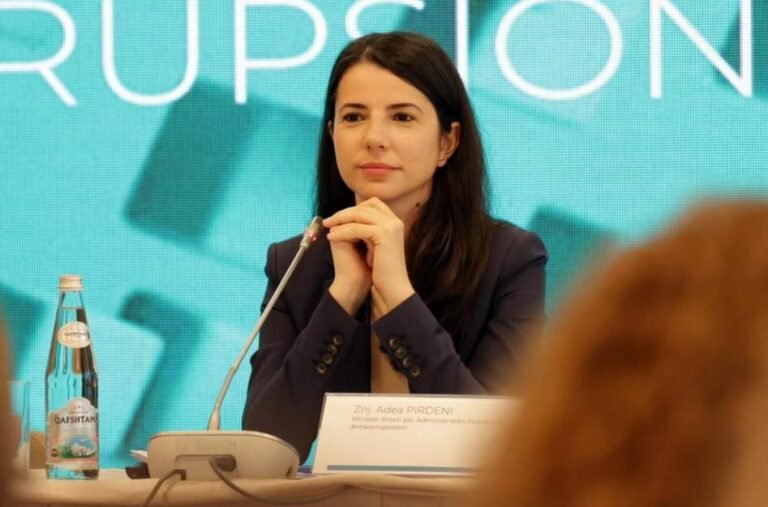Minister Pirdeni unveils 2024-2030 Anti-Corruption Strategy

Photo: Adea Pirdeni
The Minister of State for Public Administration and Anti-Corruption, Adea Pirdeni, launched the Intersectorial Anti-Corruption Strategy for 2024-2030, developed in partnership with the EU-funded “EU 4 Good Governance” project.
Why is this important: The strategy serves as a fundamental policy document that outlines concrete commitments from all responsible institutions to intensify the fight against corruption at every level of governance. It represents a crucial step in Albania’s ongoing efforts to strengthen its institutional integrity and align with European Union standards.
Context: The Minister emphasized that the strategy employs a three-pronged approach: prevention, punishment, and awareness. This comprehensive method aims to address key corruption challenges systematically and ensure long-term effectiveness. By implementing systemic measures, the government seeks to uphold the highest standards of integrity, transparency, and accountability across public and private sectors.
The strategy prioritizes enhancing collaboration and synergy among all institutions responsible for combating corruption. It stresses the importance of effective coordination to maximize impact and ensure that anti-corruption efforts are streamlined. The ultimate goal is to deliver efficient and transparent public services to citizens, building greater trust in government institutions.
High-risk sectors: The strategy identifies key sectors most vulnerable to corruption, including property management, taxes and customs, healthcare, public contracts, and education. These areas will be subject to increased scrutiny and improved mechanisms for accountability and transparency.
Broader implementation: A significant expansion of the strategy’s scope involves extending anti-corruption efforts into local governance and the private sector. For the first time, local government institutions will be part of this initiative, promoting integrity at every governance level. Additionally, there will be a strong focus on youth education, with plans to revise the pre-university curriculum to teach the principles of integrity and legality from a young age.
What else: Over the past three months, the strategy has undergone an extensive consultative process. Discussions with business leaders, media representatives, civil society organizations, academic experts, and local governance bodies have helped refine the strategy. A nine-week public consultation period further enriched the document, incorporating diverse perspectives and feedback from all relevant stakeholders.


